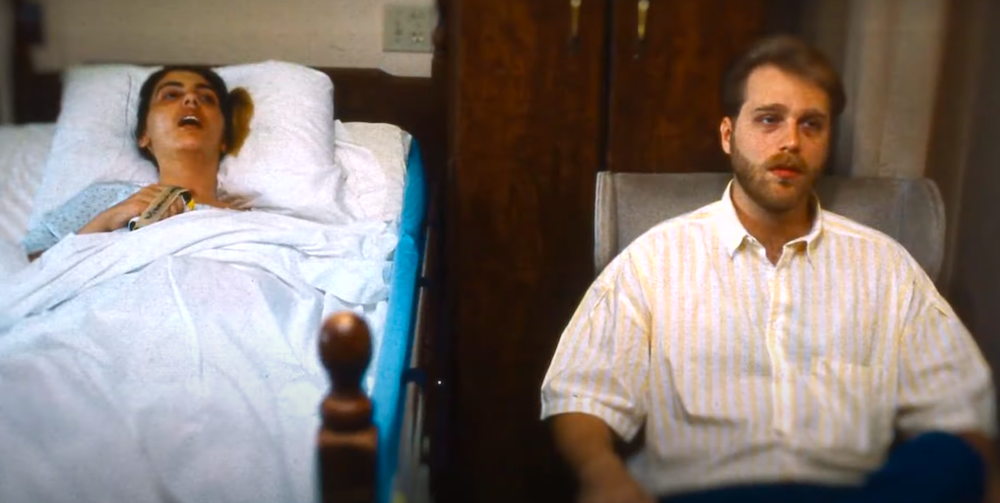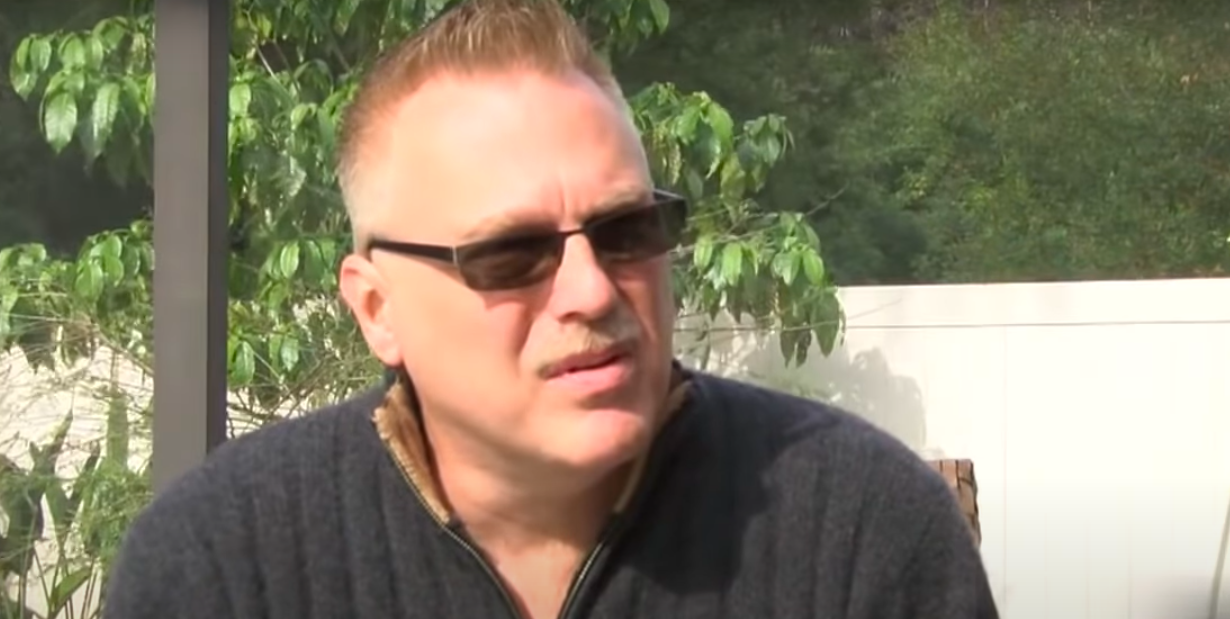Terri Schiavo's story captivated the world and sparked heated debates about end-of-life decisions, medical ethics, and the role of family in critical health situations. Her husband, Michael Schiavo, became a central figure in one of the most controversial legal battles in modern history. This article delves into the life of Terri Schiavo, her husband's pivotal role, and the profound implications of their case on medical ethics and personal autonomy.
The case of Terri Schiavo, a young woman left in a persistent vegetative state, brought to light the complexities of medical decisions and the emotional turmoil faced by families. Michael Schiavo, her husband, found himself at the center of a legal and ethical storm, advocating for what he believed was Terri's wish.
This article will explore the life of Terri Schiavo, her husband's journey, and the legal and ethical dimensions of their case. By examining the details, we aim to provide a comprehensive understanding of the situation and its lasting impact on society.
Read also:Matt Serra Ethnicity Unveiling The Roots Of A Ufc Legend
Biography of Terri Schiavo
Early Life and Background
Terri Schiavo was born on December 3, 1963, in Boston, Massachusetts. She grew up in a loving family and later moved to Florida, where she met her future husband, Michael Schiavo. Before her tragic collapse in 1990, Terri led an ordinary life, working as a bookkeeper and enjoying time with her family and friends.
Below is a summary of Terri Schiavo's personal information:
| Full Name | Terri Lynn Schindler Schiavo |
|---|---|
| Date of Birth | December 3, 1963 |
| Place of Birth | Boston, Massachusetts |
| Spouse | Michael Schiavo |
| Date of Incident | February 25, 1990 |
Terri Schiavo Husband: Who is Michael Schiavo?
Introduction to Michael Schiavo
Michael Schiavo, born on October 27, 1963, is Terri Schiavo's husband and the central figure in the legal battles surrounding her care. As the primary decision-maker for Terri, Michael faced immense pressure from both sides of the debate. His role as a husband and advocate for Terri's wishes became the focal point of national attention.
Legal Battles and Controversies
The Persistent Vegetative State
After collapsing at home in 1990, Terri Schiavo was diagnosed with a persistent vegetative state (PVS). The diagnosis meant that she lacked awareness and cognitive function, relying entirely on medical intervention for survival. Michael Schiavo argued that Terri would not have wanted to continue living in such a state.
Key points about Terri's condition include:
- Persistent vegetative state diagnosis confirmed by multiple medical professionals.
- Legal battles ensued over the removal of her feeding tube.
- Michael Schiavo's decision was contested by Terri's parents, who believed she could recover.
Role of Family in Decision-Making
Conflict Between Husband and Parents
The conflict between Michael Schiavo and Terri's parents, Bob and Mary Schindler, intensified as the legal battle progressed. While Michael claimed that Terri expressed her desire not to be kept alive artificially, her parents argued that she had never explicitly stated such wishes.
Read also:Unveiling The Truth Chandler Riggs And The Jail Controversy
Studies show that family disputes in end-of-life cases are common, with 40% of cases involving disagreement among family members about the patient's wishes. This highlights the importance of advance directives and clear communication about end-of-life preferences.
Public Reaction and Media Coverage
The Impact of Media on the Case
The Terri Schiavo case garnered extensive media coverage, drawing attention from politicians, religious leaders, and the general public. The media played a significant role in shaping public opinion, often presenting the case as a moral and ethical dilemma.
Some notable public reactions include:
- Protests outside the hospice where Terri was being cared for.
- Legislative attempts to intervene in the case, including a federal law passed by Congress.
- Public debates about the role of government in private medical decisions.
Medical Ethics and Legal Implications
End-of-Life Decisions and Legal Frameworks
The Terri Schiavo case raised important questions about medical ethics and the legal framework governing end-of-life decisions. It underscored the need for clearer laws and guidelines to address such situations, ensuring that patients' wishes are respected while protecting their rights.
According to the American Medical Association, patients have the right to make informed decisions about their medical care, including the refusal of life-sustaining treatments. This principle was central to Michael Schiavo's argument in favor of removing Terri's feeding tube.
Michael Schiavo's Advocacy
Standing by Terri's Wishes
Throughout the legal battle, Michael Schiavo remained steadfast in his belief that Terri would not have wanted to remain in a persistent vegetative state. His advocacy for Terri's autonomy and dignity became a rallying cry for those who supported his decision.
Michael's actions were supported by:
- Testimonies from friends and family who corroborated Terri's expressed wishes.
- Legal precedents affirming the rights of patients to refuse medical treatment.
Public Policy and Legislative Impact
Changes in Laws Following the Case
The Terri Schiavo case prompted significant changes in public policy and legislation related to end-of-life decisions. Several states enacted laws requiring clearer documentation of patients' wishes and greater involvement of healthcare providers in decision-making processes.
Research indicates that after the Schiavo case, there was a 30% increase in the use of advance directives and living wills, reflecting a growing awareness of the importance of planning for end-of-life care.
Emotional Toll on Family Members
The Struggles of Michael Schiavo
While Michael Schiavo's decision was ultimately upheld by the courts, the emotional toll of the case on him and his family cannot be overstated. The years-long legal battle and public scrutiny took a significant personal and psychological toll on all parties involved.
Studies show that family members involved in end-of-life decisions often experience heightened stress and anxiety, emphasizing the need for support systems to assist them during such challenging times.
Legacy of the Terri Schiavo Case
Impact on Medical Ethics and Society
The legacy of the Terri Schiavo case extends beyond the legal and ethical debates it sparked. It serves as a reminder of the importance of clear communication, advance directives, and respect for patients' autonomy in end-of-life situations.
The case also highlighted the need for greater public education about medical ethics and the legal rights of patients, encouraging individuals to discuss their preferences with loved ones and healthcare providers.
Conclusion and Call to Action
The story of Terri Schiavo and her husband, Michael Schiavo, remains one of the most significant cases in modern medical ethics. It underscores the importance of respecting patients' wishes, clear communication, and the role of family in end-of-life decisions. By examining the details of this case, we gain valuable insights into the complexities of medical ethics and the profound impact of such decisions on individuals and society.
We invite readers to reflect on their own end-of-life preferences and consider creating advance directives to ensure their wishes are respected. Additionally, we encourage you to share this article with others and explore more content on our site to deepen your understanding of critical issues in healthcare and ethics.
Table of Contents
- Biography of Terri Schiavo
- Terri Schiavo Husband: Who is Michael Schiavo?
- Legal Battles and Controversies
- Role of Family in Decision-Making
- Public Reaction and Media Coverage
- Medical Ethics and Legal Implications
- Michael Schiavo's Advocacy
- Public Policy and Legislative Impact
- Emotional Toll on Family Members
- Legacy of the Terri Schiavo Case


